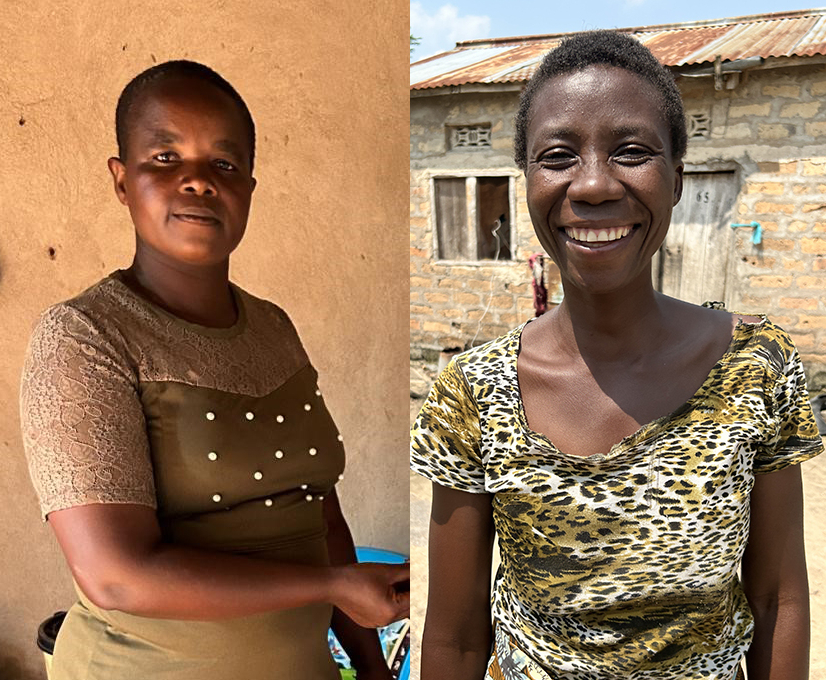This website uses cookies
We use cookies to ensure that we give you the best experience on our website. If you continue to use this site we will assume that you are happy with it.

The moment Chaisiku Ngama Magoiga swung a hammer in self-defense and killed her husband, years of torture at his hands came to an end. But it brought another ordeal—a capital trial and a long wait on death row.
Anna Makame (a pseudonym), a destitute subsistence farmer with a history of domestic violence and mental illness—who, for days at a time, had no food to feed the family she was raising alone—sought to end the starvation by poisoning herself and her children. She faced a death sentence.
Both women are now free and living with their families, thanks largely to defense efforts by the Cornell Center on the Death Penalty Worldwide and its alumni and human rights colleagues in Tanzania, where the women live.
Sadly, these are not isolated cases, said Sandra Babcock, a clinical professor of law and faculty director of the Center. Women and transgender people who face extreme sentences have deeply traumatic backstories.
“Their cases are different from men’s,” she said, “but nobody was really talking about them as a group, because there are very few of them compared to the number of men on death row.”
Years of Domestic Violence
Magoiga was awaiting execution in Butimba Prison when Babcock learned of her case from an associate in Tanzania. One look at the court transcript told her everything she needed to know: Magoiga’s husband had inflicted repeated and brutal violence on his wife and children, and it had not been taken into account in her sentencing.
“It was really an outrageous verdict and sentence. The judge chose not to believe her. It was so arbitrary,” Babcock said. “It was also emblematic of the ways in which women’s experiences of gender-based violence tend to be ignored by the courts—not just in Tanzania, frankly. It happens in the U.S. too. This is a global phenomenon.”
The Center on the Death Penalty Worldwide hired a lawyer to file a supplemental brief, prepared by students in the Center, to support a bare-bones appeal that Magoiga filed with the help of a prison guard. When arguments were heard, the court overturned her murder conviction and death sentence and ordered her immediate release.
Isolation and Abuse
To understand Anna Makame’s crime, the Center needed to know her life experience. The Center hired a clinical psychologist, who learned she had been abandoned by her mother as an infant, could not read or write, and had been physically and emotionally abused. She had fled a violent marriage and was raising five children as a single parent without a stable source of income. The psychologist diagnosed her with Reactive Attachment Disorder and Major Depressive Disorder.
After two months of drought that killed their food supply, Makame was pregnant with her sixth child—and desperate. It was in this hopeless state that she mixed poison into rice and anchovies taken from a shop and ate it with her family before going to sleep. Two of her children died.
She was arrested and charged with murder, which comes with a mandatory death sentence, and her children were taken away. Makame gave birth to her baby boy, David, alone on the floor of a prison washroom.
An early graduate of the Center’s training program for African capital defenders alerted Babcock about the case and the Center stepped in quickly, filing an appeal with United Nations officials arguing Tanzania was in violation of international human rights law by failing to provide what Anna needed as a pregnant woman and as a mentally ill mother caring for her infant in prison.
Babcock brought in a tenacious young Tanzanian defense lawyer, who succeeded in persuading prosecutors to reduce the charges to manslaughter. It was still a homicide case, Babcock said, but one that “reflects the lower culpability of somebody who was affected by her mental illness in a situation that really would have been hopeless for anyone.”
The President of Tanzania commuted Makame’s sentence in December and she was released. Makame now lives with her mother and toddler son in another village.
“What we knew was that prison was not the place for her,” Babcock said. “Now that she has the support she needs … we think that her life will be different.”
Launched in 2016, the Cornell Center on the Death Penalty Worldwide provides data and legal analysis on death penalty laws and practices around the world; on-the-ground advocacy; and education for lawyers, judges, and policymakers. Many of the lawyers who receive training throughthe Center live in Sub-Saharan Africa, where resources are severely limited.
Alumni and Students Build Cases
Students and alumni play a big part in the Center’s work, including students in Babcock’s International Human Rights Clinic. They travel to Sub-Saharan Africa to work directly with defendants and gather mitigating evidence. More than 250 people have been released from prison as a result of their work.
For these most recent wins, Nathalie Greenfield ’21 and Gabriela Markolovic ’21 played a vital role by working with the Center’s Tanzanian partners, developing evidence of gender-based violence and trauma histories, and drafting legal documents.
Clinic students Ayesha Umana Dajud, LL.M. ’22; Sami Debessai Corino ’23; Jillean Workman ’23; Sabrina Bryan ’22; Hetali Sheth ’23; Marilyn Blamèble ’24; and Christine Brittain ’23 developed and wrote legal briefs, including appeals to United Nations experts. They also researched the women’s living conditions and the lack of social support for victims of gender-based violence in Tanzania.